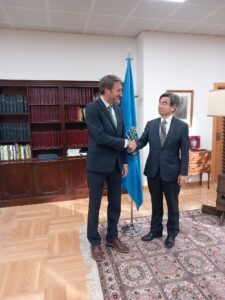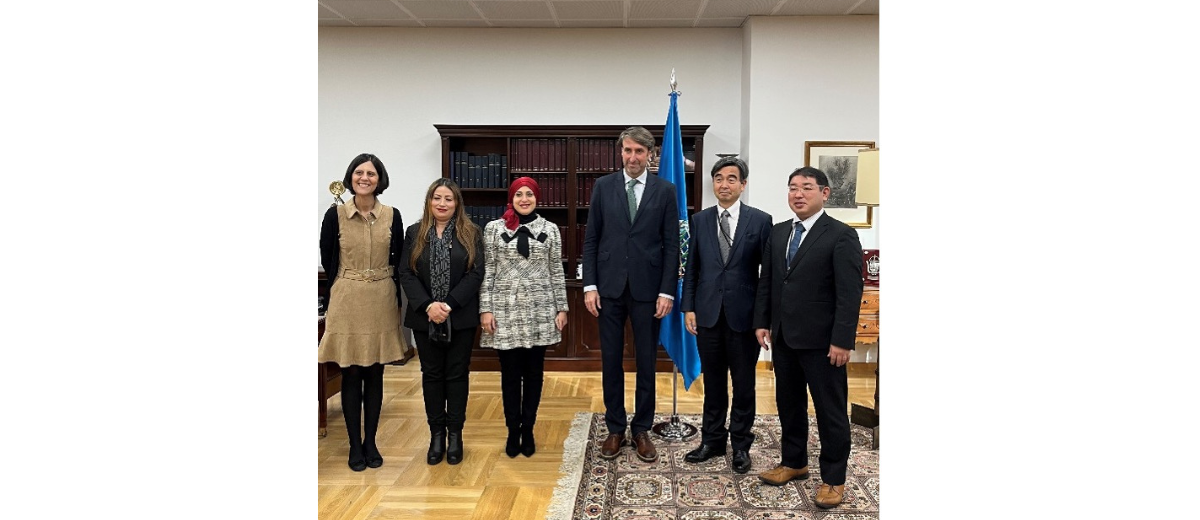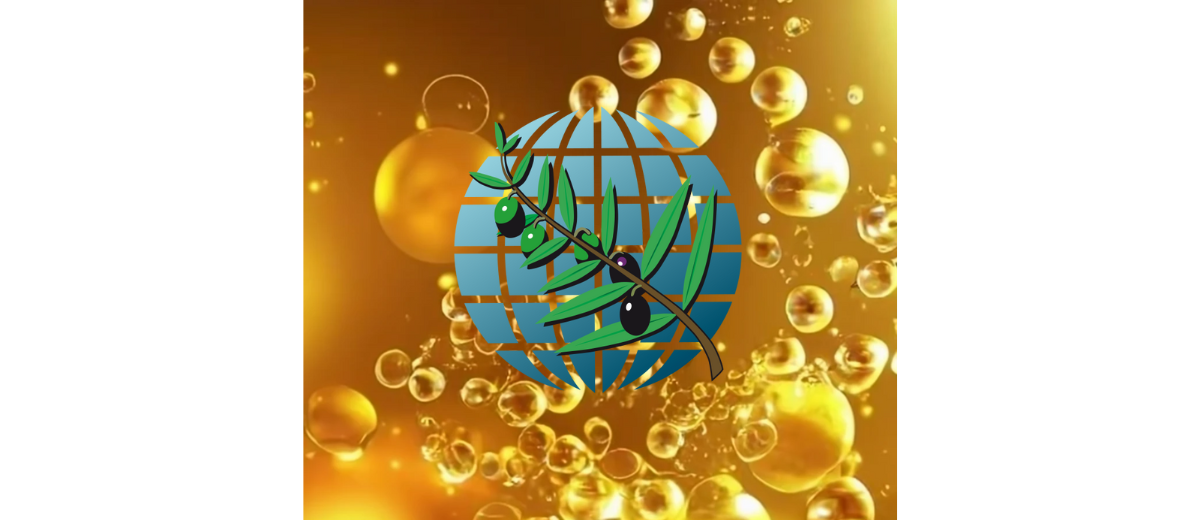Olive oil is the first vegetable oil in Japan in value terms
On Wednesday 17 January, IOC Executive Director Jaime Lillo received a delegation from the Japanese Oilseed Processors Association (JOPA) at the Organization’s headquarters. The delegation included Akira Saito, JOPA Executive Director, and Toshiyuki Yoshi from the Japan Inspection Institute of Fats and Oils (IIFO). The visit aimed to follow up on previous encounters between the IOC and JOPA, with a view to strengthening the relationship between both organizations in the light of Japan’s growing interest in the olive oil sector. In fact, olive oil is the country’s top ranking vegetable oil in value terms. From March 2024, Japan will enforce its first ever regulation for olive oil labelling, entirely based on the IOC’s trade standard. An initiative encouraged by JOPA, the nation is the first non-IOC member to make the Organization’s trade standard a national regulation. Moreover, Japan now counts on a total of five physico-chemical and analysis laboratories and two tasting panels recognized by the IOC.
 The meeting, which was also attended by representatives of the IOC’s Economic and Promotion and Standardisation and Research Units, included a presentation of the Organization’s latest work and a recap of the world market of olive oil and table olive production, exports and imports, followed by an update of the Japanese association’s recent developments. Both organizations then held an in-depth discussion on an array of issues regarding the tightening of bonds between Japan and the IOC. JOPA representatives conveyed the complex road to achieving the adoption of the IOC trade standard for labelling regulations, approved by the National Fair-Trade Commission and the Japanese Consumer Agency and scheduled to be adopted nationally in March 2024. This achievement was warmly welcomed by the IOC. Jaime Lillo also congratulated the Association for their incredible accomplishment in terms of the recognition of five physico-chemical analysis laboratories and two sensory panels. He recalled that in 2017, on the occasion of the Executive Secretariat’s visit to Japan, the country did not count on any recognized laboratories nor tasting panels recognized by the IOC at the time.
The meeting, which was also attended by representatives of the IOC’s Economic and Promotion and Standardisation and Research Units, included a presentation of the Organization’s latest work and a recap of the world market of olive oil and table olive production, exports and imports, followed by an update of the Japanese association’s recent developments. Both organizations then held an in-depth discussion on an array of issues regarding the tightening of bonds between Japan and the IOC. JOPA representatives conveyed the complex road to achieving the adoption of the IOC trade standard for labelling regulations, approved by the National Fair-Trade Commission and the Japanese Consumer Agency and scheduled to be adopted nationally in March 2024. This achievement was warmly welcomed by the IOC. Jaime Lillo also congratulated the Association for their incredible accomplishment in terms of the recognition of five physico-chemical analysis laboratories and two sensory panels. He recalled that in 2017, on the occasion of the Executive Secretariat’s visit to Japan, the country did not count on any recognized laboratories nor tasting panels recognized by the IOC at the time.
Other topics of discussion included the possibility of accession to the Organization and Japan’s potential participation as an observer country, the importance of increasing promotion activities in the Asian country, and specificities concerning the recognition of sensory and physico-chemical analysis laboratories.
This meeting was part of the ongoing commitment to foster and amplify the relations that have been carefully developed over the course of several years. Amongst other milestones, Japan welcomed an IOC-led promotion campaign hosted by JOPA in 2018, and both organizations co-hosted a seminar in Tokyo entitled “Evolution of current markets: expansion of olive oil in Japan and the world” in 2020. Representatives from Japan’s Ministry of Agriculture, JOPA and the IOC also convened virtually in 2022 to bring the intergovernmental organization closer to Japanese olive oil sector stakeholders.
Japan’s increasing interest in fostering its olive oil sector under the IOC’s guidance is enthusiastically greeted by the Organization, the world’s only intergovernmental organization exclusively dedicated to the standardisation and the promotion of the sustainable production and consumption of olive oil and table olives across the globe.










